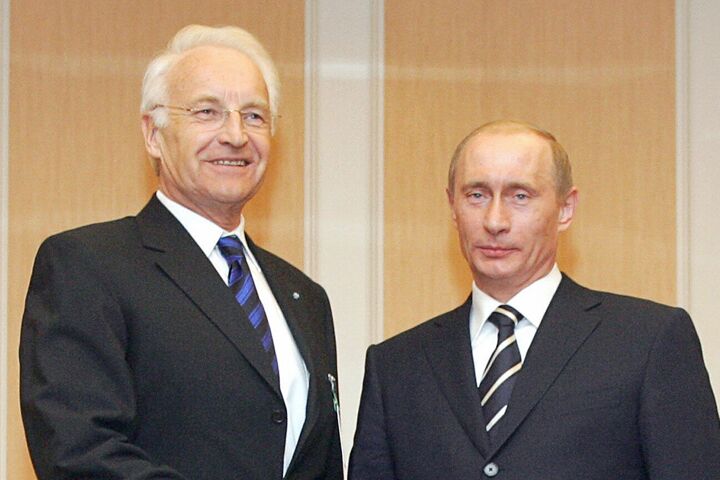
Stoiber Supports Russia, Spurns U.S.
On July 5, Edmund Stoiber, the head of Bavaria’s government and chairman of Germany’s conservative Christian Social Union, met with Russian President Vladimir Putin to discuss the U.S.-proposed missile defense plan and European-Russian relations.
According to the Eurasia Daily Monitor, upon arrival in Moscow, Stoiber was given a royal welcome. Besides an extremely long audience with Putin, the Russian president also passed on “detailed” information about his recent meeting with U.S. President George W. Bush. President Putin also specially arranged a parade of the Kremlin Guard cavalry in honor of Stoiber’s visit—an unprecedented favor. Stoiber and his wife were also treated to a dinner at Putin’s home outside Moscow.
During the meeting, which lasted four hours, Stoiber endorsed Russia‘s goal of defeating America’s proposed European missile defense system and voiced his support for a joint nato-Russia arrangement. “The position of Germany, of its government, in any case my [Bavarian] government’s and my party’s position, is entirely clear,” said Stoiber. “We are in favor of the [Russian plan].”
Thus Stoiber threw his weight behind squashing Washington’s plan to place anti-missile batteries in Poland and the Czech Republic.
After the meeting, Stoiber said his open and friendly conversation with Putin covered a wide gamut of issues in Russian-German and Russian-EU relations. He also called for the creation of a European Union-Russia free-trade zone, and referred to Russia as Germany’s “strategic partner.”
In the midst of several points of open contention between Germany and Russia, the Stoiber-Putin meeting was a rare moment of communion. It highlighted how these two historic enemies never take each other for granted. They have a long history of coping with rising tensions by embracing one another—and then that embrace quickly transforming into all-out war.
The disastrous product of past German-Russian treaties, in the style of the Molotov-Ribbentrop Pact, has been born out in violent history over and over.
The developing relationship between Stoiber and Putin bears close watching. Stoiber certainly seems like a leader that could patch any real or perceived schisms between the two countries and work out another alliance with Russia. For information on where Russian-German relations are heading, read “Russo-German Pact Imminent.”
